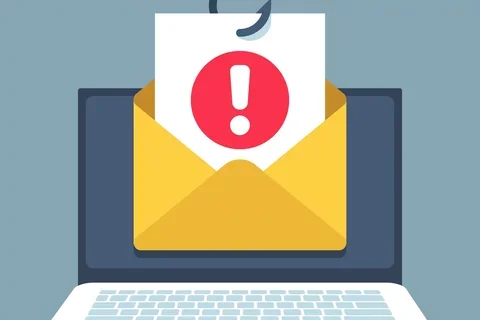Phishing Scams Ramp Up During the Holidays and Election Season

As we approach both election season and the holidays, phishing attacks become even more common. Scammers exploit these busy times to catch people off guard. Common types of phishing include:
- Email Phishing: Fraudulent emails that appear to come from trusted sources like legitimate companies, election officials, or online retailers. These emails often contain malicious links or attachments designed to steal your information. Learn more on phishing →
For your Mednet email, reporting suspicious emails is as easy as a click of a button. Watch our Report a Phishing video to learn more about phishing and how to protect your email.
- SMS Phishing (Smishing): Fake text messages that may claim you’ve won a holiday prize or need to update your voting information, encouraging you to click dangerous links.
Why It Increases During These Times:
- Election Season: Attackers take advantage of heightened political interest, sending fake emails or texts related to voter information or political campaigns.
- Holidays: Increased online shopping, travel bookings, and gift card purchases give scammers more opportunities to defraud you. Learn more on holiday scams and how to protect yourself →
How to Protect Yourself:
- In your Mednet email, use the Report Suspicious button in Outlook to have an email sent to our security team for review.
- Report smishing texts to your carrier.
- Avoid clicking on unsolicited links or downloading attachments from unknown senders.
- Double-check the authenticity of any messages requesting personal information.
- Visit the official website of the sender or contact them directly if you're unsure.
- Use two-factor authentication (2FA) wherever possible for added security.
By staying aware and cautious, you can significantly reduce the risk of falling victim to phishing scams.